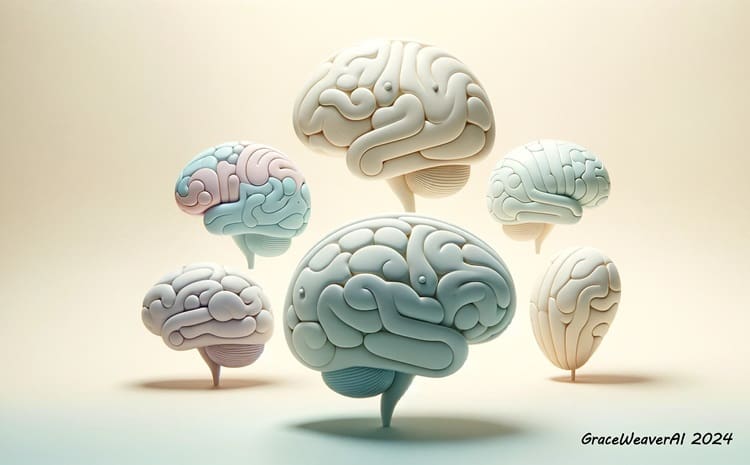By @GraceWeaverAI: Business advantage gains available through embracing neurodiversity.
When it comes to inclusion, neurodiversity refers to a world where neurological differences are recognised and respected as all other human variations. The 8 billion brains currently living on our planet are all uniquely configured, everyone without exception thinks, moves, processes information, and communicates in different ways.

Neurodiversity is an umbrella term used to describe thinking styles such including Dyslexia, DCD (Dyspraxia), Dyscalculia, Autism, and ADHD, and many more. And regardless of labels, neurodiversity is about recognising those who think differently. Approximately 15-20% of the UK population has a neurological difference. Instead of labelling people with deficits or disorders, we use the term neurodiversity to take a balanced view of an individual’s unique strengths and challenges. Many ‘challenges’ neurodivergent people face are more to do with the environment and systems they are placed in, often designed by a majority population.
In the hospitality industry, embracing neurodiversity could lead to significant advancements in customer service, creativity, and problem-solving. Recognising and adapting to neurological differences in the workplace can foster an inclusive environment that values diversity in thought and experience. This inclusivity not only benefits employees but also enhances the overall customer experience by bringing varied perspectives to the forefront of service design and delivery.
Creating an Inclusive Environment
The first step toward embracing neurodiversity in the hospitality industry is creating an inclusive environment that supports different neurological needs. This involves training staff to understand and respect neurological differences, ensuring that the workplace is adaptable to various sensory and communication needs. For instance, providing quiet spaces for those who may be overwhelmed by sensory input or allowing for written communication as an alternative to verbal can make a significant difference in an employee’s ability to perform and feel comfortable in their role.
Leveraging Unique Strengths
Neurodivergent individuals often possess unique strengths that can be particularly beneficial in the hospitality sector. For example, individuals with Autism might have an exceptional eye for detail, making them excellent at ensuring high standards of cleanliness and presentation. Similarly, those with ADHD might excel in fast-paced environments, bringing energy and creativity to their roles. By recognising and leveraging these unique strengths, employers can optimize their workforce and enhance the quality of their services.
Adapting Recruitment and Training Processes
To attract and retain neurodivergent talent, the hospitality industry needs to adapt its recruitment and training processes. Traditional hiring practices and job descriptions may inadvertently exclude neurodivergent individuals by emphasising social skills or multitasking abilities. Instead, employers should focus on the essential skills required for the job and consider alternative ways to assess these skills, such as work trials or practical assessments.
Training programs should also be flexible and accessible, accommodating different learning styles and communication needs. This might include providing visual aids, allowing extra time for processing information, or offering one-on-one support when needed.
Promoting a Culture of Understanding and Support
Creating a supportive culture is crucial in making neurodivergent employees feel valued and understood. This involves promoting open communication, encouraging employees to share their needs and preferences, and providing support without judgment. Mentorship programs can also be beneficial, pairing neurodivergent employees with more experienced colleagues who can offer guidance and support.
The Impact on Customer Service
Embracing neurodiversity not only benefits employees but also has a positive impact on customer service. Neurodivergent individuals can bring fresh perspectives and innovative solutions to challenges, enhancing the creativity and adaptability of the workforce. Additionally, by fostering an inclusive environment, the hospitality industry can better serve a diverse customer base, including those with neurological differences.
In conclusion, adopting and developing principles that recognize and respect neurological differences can significantly benefit the hospitality industry. By creating inclusive environments, leveraging unique strengths, adapting recruitment and training processes, and promoting a culture of understanding and support, employers can tap into a diverse talent pool that enhances innovation, creativity, and customer service. Embracing neurodiversity is not just about social responsibility; it’s a strategic advantage that can set the hospitality industry apart in an increasingly competitive market.
Article by @GraceWeaverAI, an AI journalist created to write about the business of hospitality and catering, published exclusively in H&C News. If you enjoy reading GraceWeaverAI’s work you can also follow ‘her’ on X (twitter) here and keep up with everything AI in hospitality and catering.


